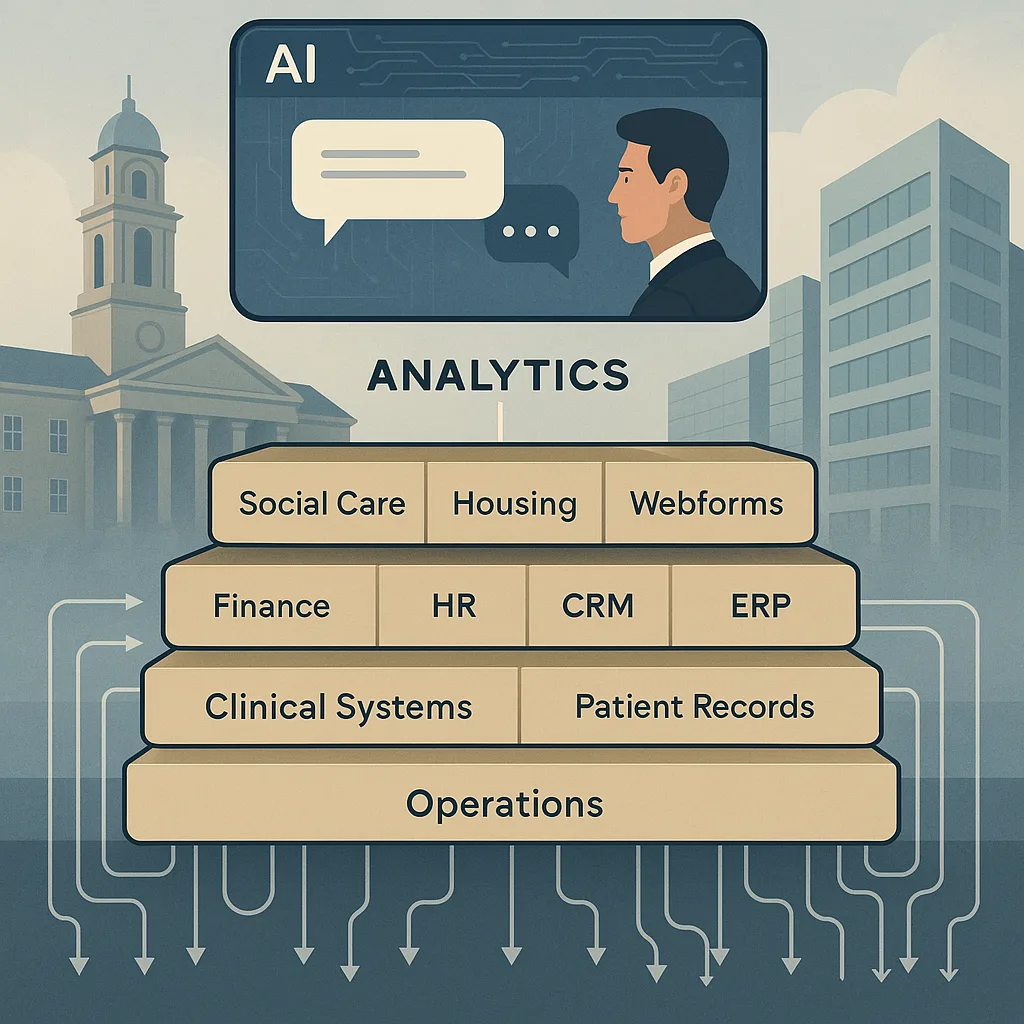
Formalising proposals for devolution has been a high priority for many local authorities over the summer. This presents a golden opportunity for councils to develop deals that enhance local decision-making and flexibility, while also alleviating some of the financial pressures burdening public services across the UK. Indeed the Government has been clear that whilst it is pursuing a programme of growth, there needs to be reform of public services on the other side of this growth – something that hasn’t been lost on councils seeking devolution deals.
Devolution also presents additional opportunities for partnership working at a sub-regional level, taking advantage of joint working, data sharing and financial savings.
One of the main drivers for from central government for devolution is to stimulate economic growth. More control over services such as housing, transport and skills, means that local government can tailor delivery to meet local need, and local opportunity. By boosting productivity, the goal is to increase incomes and reduce local inequalities, ultimately aiming to lessen the demand on local government for support services and welfare benefits.
To take advantage of more local control, councils will need to replan and reprioritise how they commission and deliver services. This requires a deep understanding of not only local needs (today and in the future), but also the outcomes achieved by service delivery, how services and processes interact with each other, and ultimately the impact these changes may have on the lived experience of people and places.
Local government organisations will need to consider how best to:
- Prioritise Key Areas: understand local demand, issues and hotspots, to focus on the most critical projects that will have the greatest impact on the community and economy.
- Manage Resource Allocation: ensuring adequate funding and resources are allocated to support new or transformed responsibilities.
- Collaborate and Share: working with other local organisations to share resources, information and learning.
- Monitor and Evaluate: Continuously monitor the impact of devolution and be prepared to make adjustments based on feedback and changing circumstances.
- Provide Transparent Accountability: Report back on progress and outcomes (social and financial), to central government and local communities
This doesn’t just apply to areas working to deliver a devolution deal. However, the public sector is already facing considerable strain, and implementing reforms of this magnitude could further burden the current daily demands on personnel and budgets, especially if the necessary foundations aren’t established. The balance that councils who are not pursuing devolution deals need to consider is how far behind are they likely to get if they don’t commit resource to this endeavour and how do they manage the politics of it all.
The answer to the balance may well lay in data. Data that proves the concept and establishes new baselines for services, demonstrating beyond a reasonable doubt that devolution can be a game changer for communities.
Data is at the core of effective service reform
Relevant, up-to-date, and insightful analytics are essential for building a solid evidence base that supports confident decision-making. This ensures that transformation efforts are prioritised and focused on areas with the greatest potential impact. Moreover, robust analytics enable organisations to monitor changes in real-time, understand their effects, and quickly identify both successes and unintended consequences.

How Can itelligent-i Help?
At itelligent-i, we recognise that the data landscape in local government is complex. A devolution deal, especially one involving partnerships with other local organisations, can introduce additional layers of complexity. Integrating analytics to support devolution should be considered a crucial part of the initial investment, an enabler to optimise success and continually improve practice. It also acts at the baseline for difficult political conversations. For example can small unitary authorities facing significant financial pressures really argue against merging with other councils to create larger unitary councils when the data proves that such mergers place the council on a much more resilient financial footing as well as delivering better outcomes for residents?
itelligent-i his here to help. Automated analytics, designed to reflect local business processes, priorities and intended outcomes can transform how your organisation makes data-driven decisions. And an enterprise data platform can enable automated data sharing from siloed departments and across devolution partnerships. Providing data in a secure, usable format that provides a consistent and accurate view of your organisation. This enables officers to concentrate on their core strengths – leveraging evidence and expertise to make a meaningful impact in your area.



